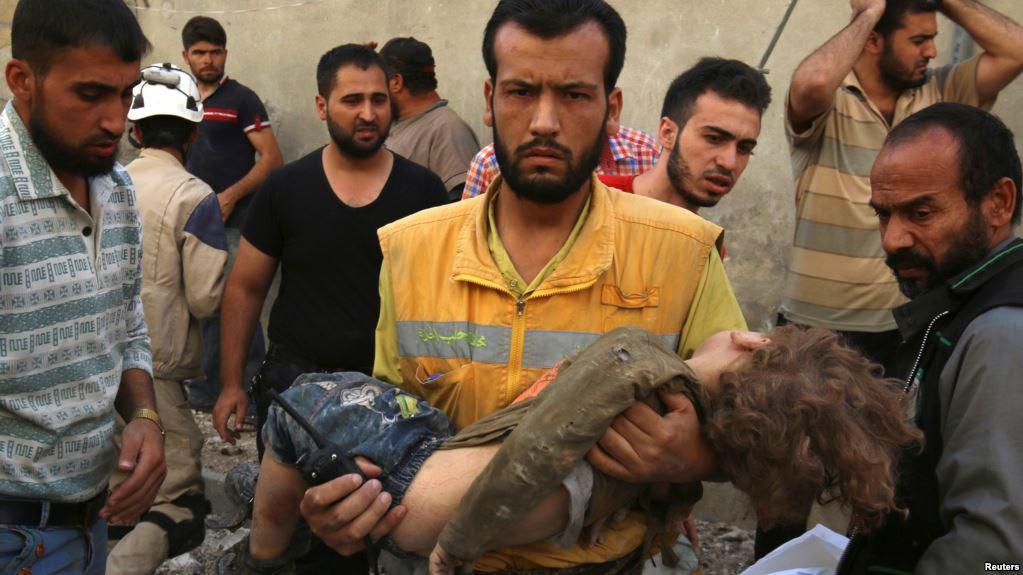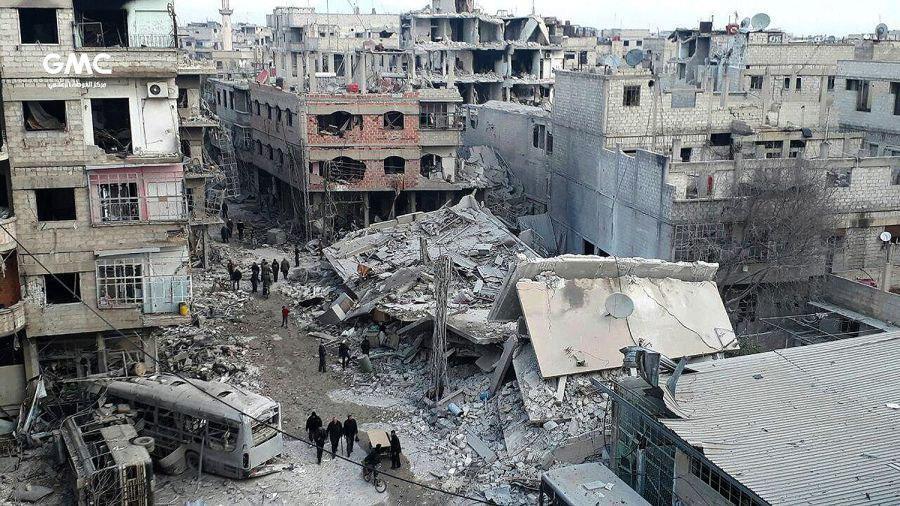UNITED NATIONS, Feb. 28 (Xinhua) — The United Nations Security Council (UNSC) Wednesday expressed frustration over the failure to implement a resolution calling for a ceasefire throughout Syria.
On Saturday, the UNSC had adopted Resolution 2401, calling for a ceasefire "without delay" for at least 30 days throughout Syria to deliver humanitarian aid and evacuate the critically ill and wounded.
"We are here again today because the brief respite you unanimously demanded only days ago in Resolution 2401 has not materialized," Jeffrey Feltman, UN undersecretary-general for political affairs, told the UNSC.
"There are no words to express our frustration over the collective failure of the international community to end this war. But that frustration is nothing compared to the suffering and destruction visited ceaselessly upon the Syrian people," Feltman said.
Airstrikes, shelling and ground offensives have continued in Syria with reports of yet another chlorine gas attack, Feltman said, adding, "What we need is implementation of 2401, and that is not happening."
UN undersecretary-general for humanitarian affairs Mark Lowcock, who briefed the UNSC before Feltman, said more than 580 people have reportedly been killed and over 1,000 others wounded due to air and ground-based strikes in Eastern Ghouta since Feb. 18, when government troops intensified efforts to re-take the rebel stronghold.
At the same time, he said, hundreds of rockets from Eastern Ghouta into Damascus have reportedly killed 15 people and injured more than 200 others.
Lowcock said UN convoys are ready to go to 10 besieged and hard-to-reach locations. They include a 45-truck convoy with aid for 90,000 people in Eastern Ghouta. But UN humanitarian workers have not been given permission to access those locations since the adoption of Resolution 2401.
No civilians have been able to leave Eastern Ghouta and there has been no improvement in the humanitarian situation in the last major rebel-held enclave, he said.
Russia's UN Ambassador Vassily Nebenzia said Saturday's resolution also "underscores the need for the parties to agree on humanitarian pauses ... and truces" and "any enduring pause must be preceded by an agreement of all parties for de-escalation."
Syria's UN Ambassador Bashar Ja'afari said the main responsibility for ceasing hostilities is on "groups that have influence on terrorist groups."
"We cannot do it alone. ... You need to have a commitment by the supporters of these terrorists in eastern Ghouta to implement the resolution, meaning stopping sending weapons," the envoy said.




